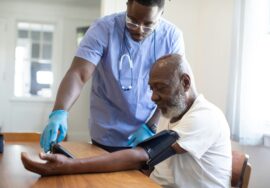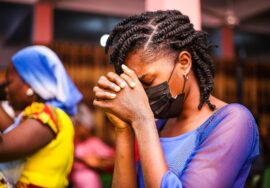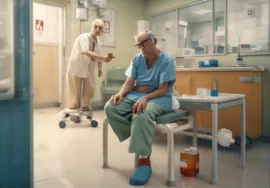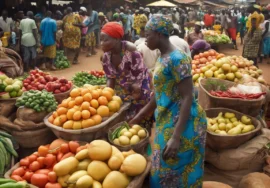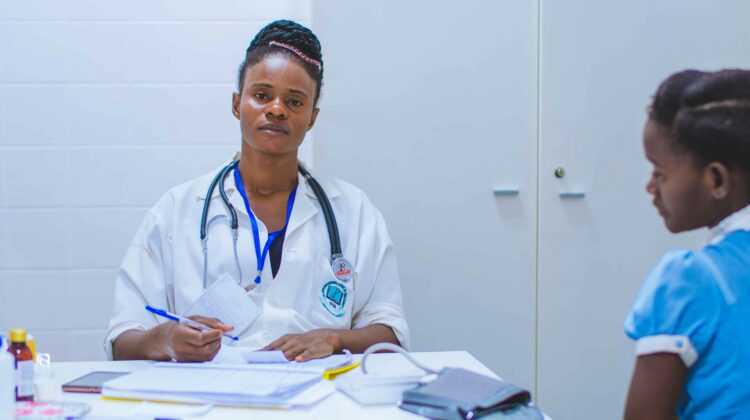
Caring for the Caregivers: Avoiding Burnout in Ghana’s Kidney Disease Families
The Invisible Heroes
Auntie Yaa hasn’t slept properly in months. Between her husband’s dialysis appointments at Korle-Bu, running her kenkey business, and caring for their grandchildren, she’s stretched thinner than fufu dough. “Sometimes I forget to eat,” she admits quietly. Like thousands of Ghanaians, Yaa is an unpaid caregiver—the invisible backbone of kidney disease management.
This post shines light on caregivers’ silent battles and provides practical ways to sustain this marathon of love without burning out.
Section 1: The Caregiver’s Heavy Load
1. The Physical Toll
-
Endless tasks: Hospital runs, medication schedules, special meal prep
-
Sleep deprivation: Waking to monitor fluid intake or nighttime emergencies
-
Real story: Kofi from Tamale developed hypertension from stress while caring for his father
2. The Emotional Weight
-
Guilt: “Am I doing enough?”
-
Grief: Watching a loved one’s health decline
-
Resentment: When other family members don’t help
3. The Financial Strain
-
Lost income from missed work days
-
Out-of-pocket costs for transportation and uncovered medications
-
Startling stat: 68% of Ghanaian caregivers dip into savings (2023 Kidney Care Foundation survey)
Section 2: Recognizing Burnout – Warning Signs
Caregiver burnout creeps in slowly. Watch for:
🔴 Physical signs: Constant fatigue, frequent headaches, weight changes
🔴 Emotional signs: Irritability, numbness, hopelessness
🔴 Behavioral signs: Neglecting self-care, social withdrawal
Nurse Akosua’s insight: “When caregivers start missing their own medical appointments, we know they’re in trouble.”
Section 3: Survival Strategies – Ghanaian Edition
1. Share the Load
-
Create a care schedule: Rotate hospital visits among siblings
-
Community support: Church groups or neighbors can help with meals
-
Pro tip: Use WhatsApp groups to coordinate help
2. Protect Your Own Health
-
Micro-breaks: Even 15 minutes of gospel music or a quick walk helps
-
Clinic buddy system: Pair with another caregiver for mutual support
3. Financial Lifelines
-
NHIS registration: Ensure patient and caregiver are covered
-
Local resources: Some chiefs provide financial aid to caregivers in need
4. Emotional First Aid
-
Talk it out: “Abusua meetings” (family councils) to air concerns
-
Sacred spaces: Caregivers at Komfo Anokye find solace in the chapel’s prayer corner
Section 4: Where to Find Help
1. Institutional Support
-
Korle-Bu Social Work Department: Free counseling for caregivers
-
Ghana Health Service: Training on home care techniques
2. Technology Tools
-
Medisafe app: Tracks medications for multiple patients
-
Mobile money groups: For collective fundraising
3. Spiritual Anchors
-
Pastor’s advice: “Let the morning devotion be your daily oxygen”
Conclusion: You Can’t Pour From an Empty Cup
To all Ghana’s kidney caregivers: Your love is a lifeline, but even the strongest need rest. Remember:
💙 Asking for help isn’t weakness—it’s wisdom
💙 Your health matters too
💙 Small self-care acts are survival
Take Action Today:
-
Pause: Set one phone reminder daily just for YOU
-
Connect: Join our Caregivers WhatsApp Support Group (DM @AdomahKidneyCare)
-
Share: Tag someone who needs to read this
“The tree that shelters others must also be watered.” – Akan proverb
.
Vivamus egestas tincidunt faucibus. Nulla tristique urna id lacinia egestas sapien arcu convallis velit id porta turpis velit molestie enim. In sagittis purus eget semper ullamcorper nisi lorem condimentum tellus vitae semper quam enim vitae justo. Vestibulum vulputate posuere nunc sit amet ultrices.


